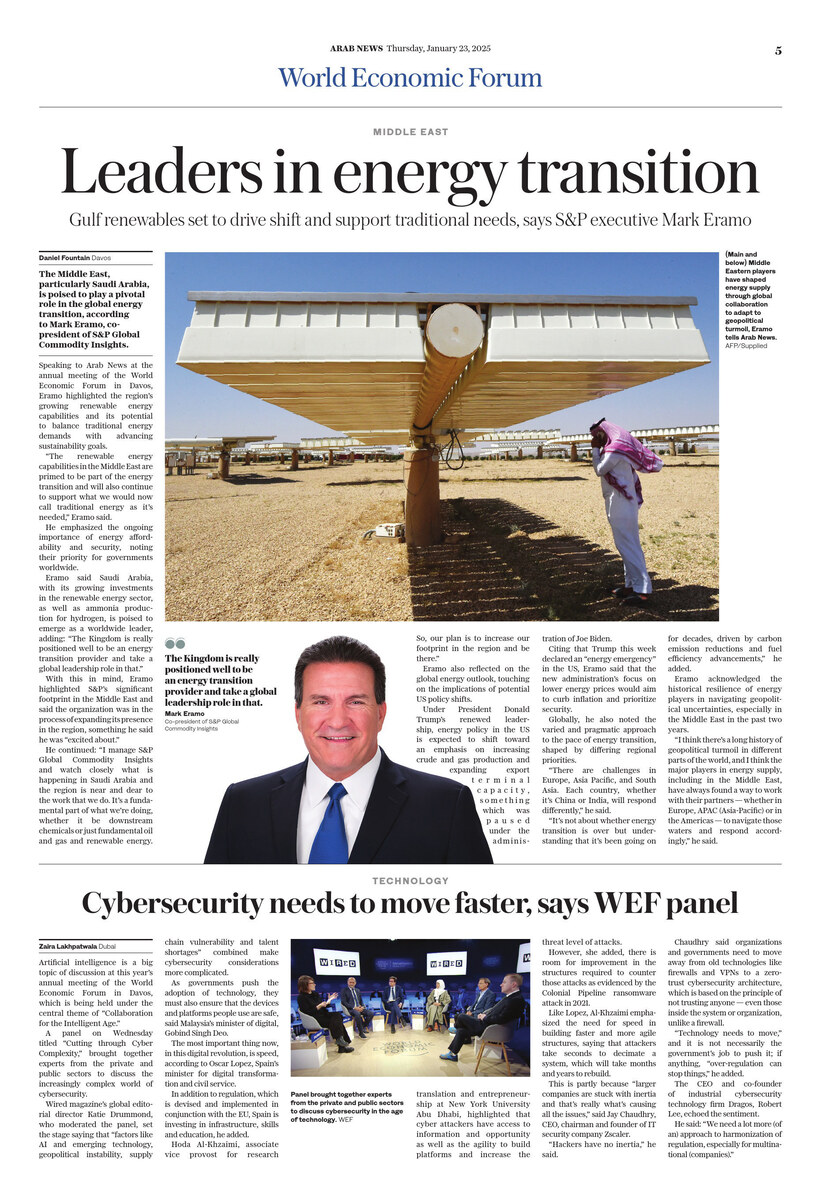WASHINGTON: Dozens of Facebook groups bill themselves as Kamala Harris fan pages but mount racist attacks, criticize her record on immigration and promote her rival Donald Trump, in what disinformation researchers call a “bait-and-switch” tactic aimed at deceiving voters in a tight US election race.
The Washington-based American Sunlight Project analyzed over 300 groups on the Meta-owned platform that masquerade as pro-Harris pages while misleading the Democratic contender’s supporters with abusive, hateful posts or capitalize on her popularity to promote merchandise.
The proliferation of such Facebook groups, which typically bring together communities with shared interests, does not appear to be an organized effort and illustrates a sophisticated tactic to seed false election narratives in trusted online spaces.
“These are usually places where there is a high level of trust between members, making them more likely to believe what is being shared there, whether that is election disinformation, miracle cures or memes,” Nina Jankowicz, ASP’s co-founder and chief executive, told AFP.
The “bait-and-switch” tactic appears to target actors across the political spectrum, including Trump.
But Jankowicz, the former Department of Homeland Security disinformation chief, said her research outfit noticed an “explosion” of such groups focused on Harris since she entered the presidential race over the summer.
One group purports to be a space for “Kamala Harris fans,” with its “about” section hailing her as a “trailblazer, a symbol of diversity, and a champion for justice and equality.”
But inside the group, posts seek to undermine Harris, including one with a photo of a brown woman smearing her face with black paint alongside the caption: “Kamala getting ready to talk to Black people.”
The post echoed Trump’s false claim that Harris “turned Black” and that she was exploiting her race to woo African-American voters.
Harris is the first Black, South Asian and woman vice president in US history.
Promoting Trump rhetoric
Another group that calls itself “Democratic voices for President Kamala Harris 2024” posted messages in support of “Make America Great Again” — the political movement and slogan popularized by Trump.
One video posted in the group showed Charlie Kirk — a conservative influencer whose political organization is focused on getting Trump reelected — promoting the Republican’s anti-immigrant rhetoric.
A similar group savaged Harris as a “border czar” who has failed to curb undocumented migration into the United States — an attack line constantly repeated by Trump and his supporters.
One other group calling itself “Kamala Harris 2024” posted a sexist meme mocking the preference of some voters for a “female president” in the face of what it depicted as pressing issues confronting the country.
Many of the “Harris” groups analyzed by ASP were run by lone actors, including some non-US moderators in Africa or Eastern Europe.
Some groups posted about topics unrelated to the vice president, including religious cult-like content, and were hotbeds for spam and merchandise sales. Many were not started from scratch, having changed their names several times to capitalize on trending issues to gain traction, ASP said.
Violation of Meta policies
In a statement to AFP, a Meta spokesman said: “Protecting the election on our platforms is one of our top priorities, and we continue to enforce our policies when we find violating content or behavior.”
Meta has previously extolled Facebook groups in commercials for their power to bring people together.
The so-called bait-and-switch strategy appears to violate Meta’s policies regarding inauthentic behavior or “complex deception,” which among other things forbids the use of its platforms to deceive users about the purpose of content.
ASP said the groups it analyzed were a representative sample and it was unable to get a fulsome picture of the scale of the abuse after Meta in August shut down CrowdTangle — a digital tool researchers hailed as vital in monitoring falsehoods.
Meta has replaced it with a Content Library, a technology that has similar functionality but is still under development.
ASP shared samples of a handful of similar “bait-and-switch” groups dedicated to Trump.
“This phenomenon isn’t unique to Harris — groups are used and abused this way across the political spectrum and across topics,” Jankowicz said.
“As we get closer to Election Day and during what is likely to be a tumultuous transition period to follow, it’s important that people slow down and try to be more deliberate when consuming content online,” she added.






























